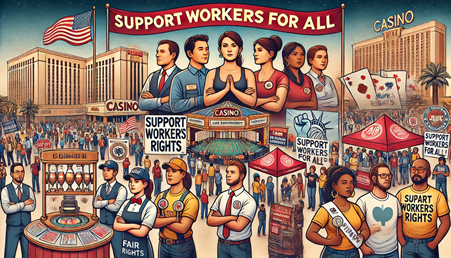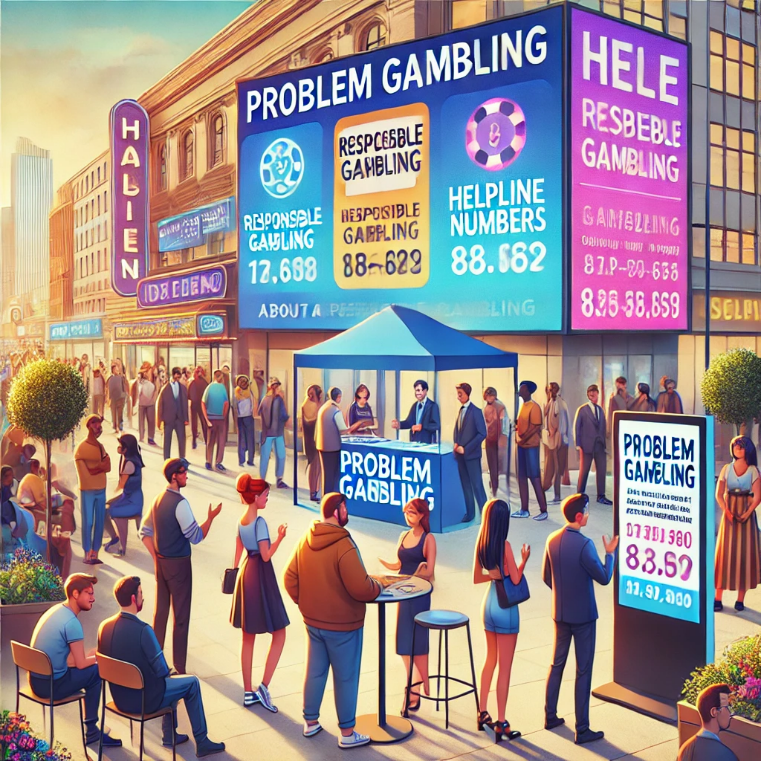 Efforts to improve labor rights in the gambling industry
Efforts to improve labor rights in the gambling industry
Efforts to improve labor rights in the gambling industry have been ongoing, as workers in the sector have historically faced challenges related to low wages, lack of job security, long hours, and unsafe working conditions.
 How casinos combat card counters, hackers, and other fraudsters
How casinos combat card counters, hackers, and other fraudsters
Casinos employ a combination of technology, human vigilance, and regulatory practices to combat card counters, hackers, and other fraudsters who attempt to cheat or manipulate games.
 How political ties influence the gambling industry
How political ties influence the gambling industry
Political ties can influence the gambling industry in deeper, multifaceted ways.
 Regulatory challenges in managing international gambling hubs
Regulatory challenges in managing international gambling hubs
Managing international gambling hubs presents a range of regulatory challenges, as these hubs often involve a mix of local, national, and international laws and regulations.
 Transparency and accountability in casino operations
Transparency and accountability in casino operations
Transparency and accountability in casino operations are crucial for maintaining fairness, trust, and integrity in the gambling industry.
 Working conditions for dealers, servers, and other staff
Working conditions for dealers, servers, and other staff
Working conditions for dealers, servers, and other staff in casinos can vary widely depending on the location, size, and type of the casino, as well as the regulatory environment in place.
 Analysis of casinos' contributions to local economies
Analysis of casinos' contributions to local economies
Casinos play a significant role in the local economies of many regions, providing both direct and indirect contributions that can be substantial.
 Challenges in maintaining security in and around casinos
Challenges in maintaining security in and around casinos
Maintaining security in and around casinos presents unique challenges due to the combination of high volumes of people, large amounts of cash, and the complex nature of criminal activities associated with gambling.
 Data showing correlations between casinos and increased local crime rates
Data showing correlations between casinos and increased local crime rates
The relationship between casinos and local crime rates is complex, and various studies have explored the correlation between casino establishments and crime in different regions.
 Effectiveness of self-exclusion programs in Casino
Effectiveness of self-exclusion programs in Casino
Self-exclusion programs in casinos are widely regarded as an important tool in addressing problem gambling.
 Efforts by law enforcement to mitigate casino-related crimes
Efforts by law enforcement to mitigate casino-related crimes
Law enforcement agencies employ a range of strategies to mitigate casino-related crimes.
 Hidden costs of casino tourism on communities
Hidden costs of casino tourism on communities
While casinos can bring substantial economic benefits to local communities, such as increased revenue, job creation, and tourism, there are also several hidden or less-discussed costs that can have negative long-term effects. These hidden costs are often not immediately obvious, yet they can significantly impact the social, economic, and cultural fabric of a community.
 Investigating allegations of corruption tied to casino licenses and permits
Investigating allegations of corruption tied to casino licenses and permits
Investigating allegations of corruption tied to casino licenses and permits is an important issue, as casinos often involve significant financial transactions, government oversight, and large-scale economic influence.
 Review of casino-sponsored programs to combat gambling addiction
Review of casino-sponsored programs to combat gambling addiction
Casinos, in collaboration with various regulatory bodies and addiction specialists, have developed and sponsored several programs aimed at combating gambling addiction. These programs not only focus on preventing problem gambling but also on helping those affected by it.
 What more can be done to support problem gamblers
What more can be done to support problem gamblers
Supporting problem gamblers requires a multi-faceted, integrated approach that combines prevention, intervention, treatment, and long-term recovery support. While some casinos and gambling establishments already offer programs, additional steps can be taken to enhance these efforts and ensure better outcomes for individuals affected by gambling addiction.
 Cases where casinos failed to deliver promised economic benefits
Cases where casinos failed to deliver promised economic benefits
While many casinos have indeed contributed to local economies, there are numerous instances where casinos failed to deliver the promised economic benefits.
 Balancing urban planning with the growth of the casino industry
Balancing urban planning with the growth of the casino industry
Balancing urban planning with the growth of the casino industry is a complex challenge that requires careful consideration of economic, social, and environmental factors. As casinos continue to be an important part of global tourism and entertainment industries, urban planners must find ways to integrate these developments into the fabric of the city or region while addressing potential risks like displacement, social inequality, environmental impact, and community cohesion.
 Cases of fraud and cheating in casinos
Cases of fraud and cheating in casinos
Fraud and cheating cases in casinos are not uncommon, as casinos are prime targets for individuals attempting to exploit vulnerabilities in gaming systems for financial gain.

